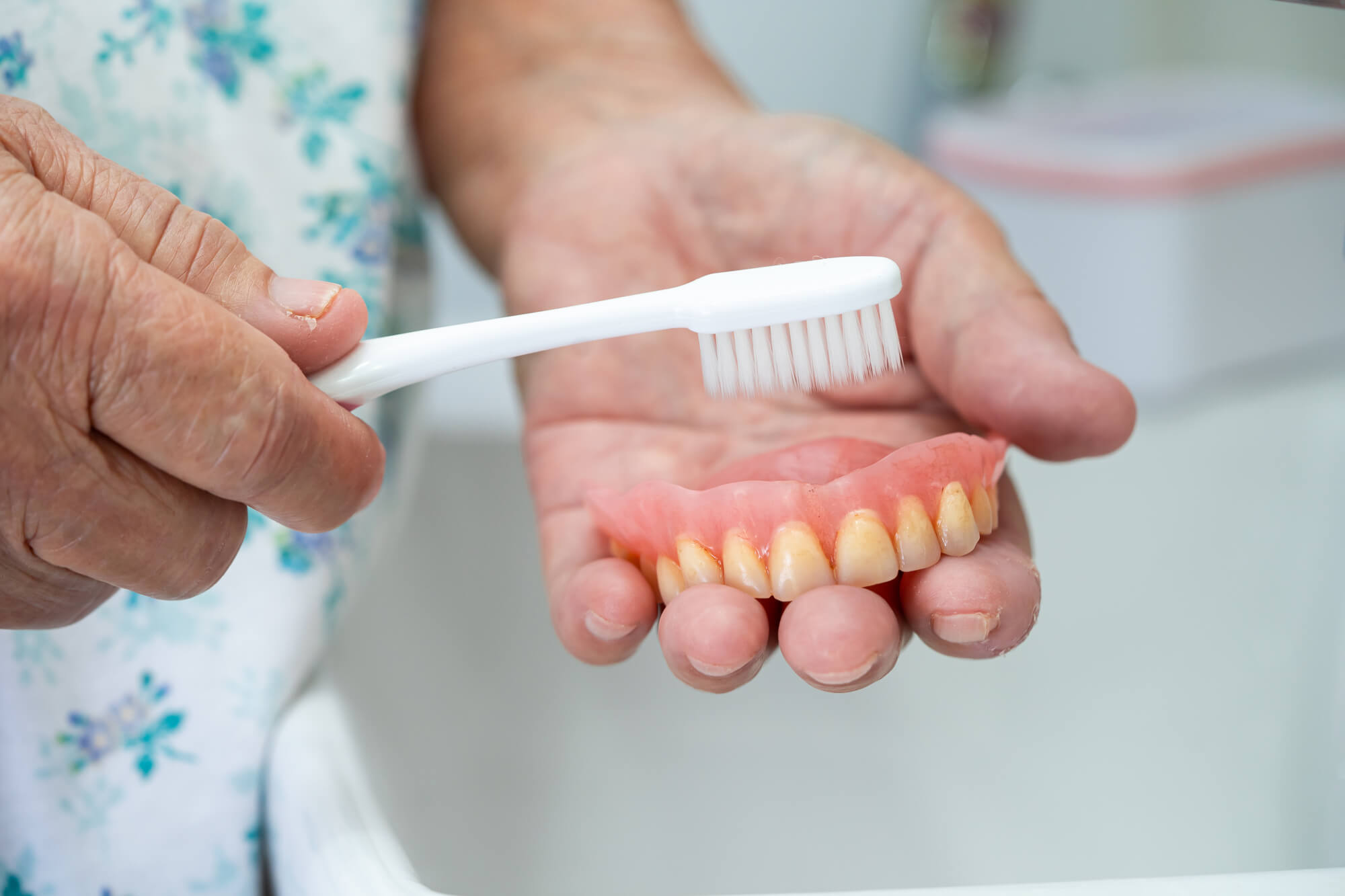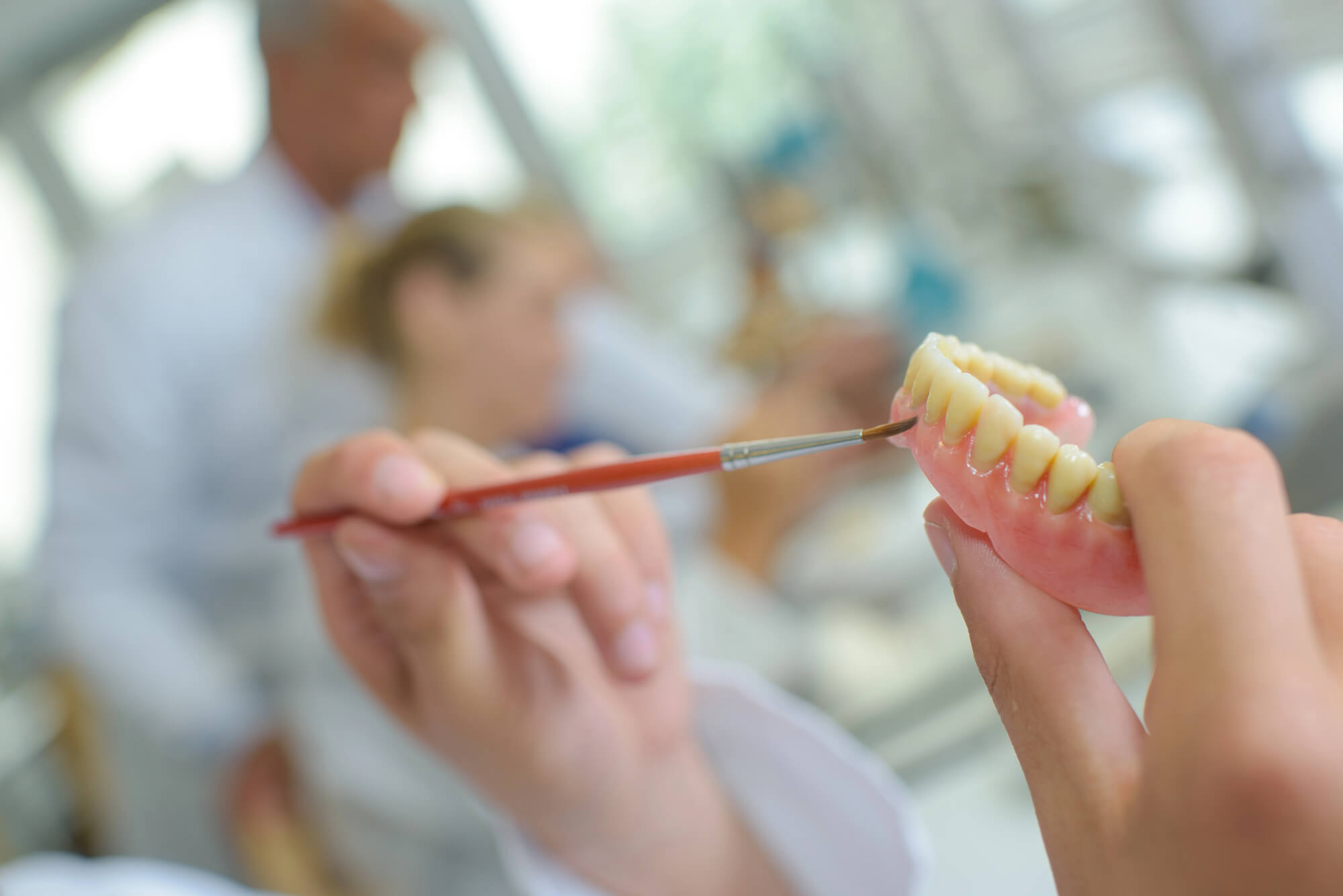While your Coral Gables dentures are designed to be durable and long-lasting, they do not last forever. How long your dentures last depends on several factors, such as your oral health, the type of dentures you have, and your dietary habits.
With proper denture care habits and an adequate diet, you can prolong the life of your dentures and prevent any irritation caused by ill-fitting dentures. To help you, here we’ll go over the average lifespan of different dentures and what you can do to make the most out of them.

Dentures are a common dental appliance that helps people with lost teeth regain their smile and chewing ability. While they can take some time to get used to, they’re often a solution for people who have lost teeth due to an accident, a disease, or poor oral health care.
Dentures can be attached or removable and are usually made of acrylic (plastic), nylon, or metal. They come in various forms, each tailored to a patient's requirements and preferences.
With proper care, dentures should last around 10 years. This means taking proper care of them and adhering to the advice given by your dentist and/or dental hygienist. However, the type of denture you have affects the longevity of your dental restoration:
Full dentures are a solution for patients who have lost their teeth. Made of acrylic resin, they fit over the gums and often have a flat surface that lies on the palate for a snug fit.
These dentures may be immediate or conventional.
Instant dentures aren’t designed to last more than a year. On the other hand, conventional full dentures are designed to last between 5 and 10 years on average. However, the pressure of constant chewing, exposure to moisture, and occasional accidental drops all contribute to wear and tear that causes dentures to degrade, shortening their lifespan.
Partial dentures are the best option for people who still have some natural teeth. They are intended to restore the mouth's functionality and appearance by filling in the spaces left by missing teeth.
They can be either removable or fixed and last up to 10 years. They are often not subjected to the same level of degradation as full dentures because you still have some natural teeth providing support. Still, it’s important to pay attention to them to promptly identify any signs of damage.
Complete or partial dentures fixed to dental implants are known as implant-supported dentures.
Dental implants are tiny posts that resemble screws and are surgically placed into the mandible to replace lost tooth roots. Implant-supported dentures have several benefits over traditional ones, such as increased comfort and stability, enhanced chewing ability, and preservation of jawbone density.
Moreover, these have an average lifespan of 10 to 15 years, sometimes even longer, lasting up to 20 years with proper care. They differ from other types of dentures in that they are supported by dental implants, which stimulate your jawbone and prevent changes in its shape, which can affect the precise fit of your restoration and reduce its duration.
Besides the type of denture you have, other factors can also affect the lifespan of your dental restorations. Here are some of them:
Apart from these considerations, it is crucial to remember that dentures will eventually deteriorate due to everyday wear and tear. Frequent dental examinations can help identify any problems with dentures and guarantee that they are operating as intended.

Dentures are designed to fit comfortably in your mouth, allowing you to eat, speak, and smile confidently. However, like natural teeth, they require proper care to ensure longevity.
Some ways to extend the average lifespan of dentures include:
As we mentioned, dentures may lose their precise fit over time. Like natural teeth, the constant pressure of chewing may deteriorate them, leaving cracks where bacteria can thrive. Additionally, dentures may shift and irritate your gums as you age and your jaw changes.
While it may seem easier just to ignore the discomfort, this can have several consequences for your oral health over time. Some of them are:
A common problem resulting from poorly fitted dentures is pain and discomfort. Improperly fitting dentures can cause sore spots and painful ulcers by rubbing against the gums.
Additionally, a misaligned jaw from poorly fitted dentures can result in headaches, earaches, and neck pain.
Eating comfortably can also be difficult when wearing poorly fitted dentures. Too-loose dentures can move or slip while you are eating, which can be uncomfortable and make it hard to chew.
Whether you realize it or not, this may result in changing your dietary habits, which could lead to weight loss and nutritional deficiencies.
Speaking difficulties are another effect of wearing poorly fitted dentures. Speech impairments like slurring or lisping can result from your dentures always shifting. This may impact a person's confidence and self-esteem and can be especially awkward in social settings.
Wearing poorly fitted dentures can also result in a number of oral health problems. Too-loose dentures can trap bacteria and food particles underneath, causing gum disease, tooth decay, and foul breath.
Furthermore, ill-fitting dentures may result in bone loss in the jaw, which may impact denture fit and necessitate further adjustments.
The effects of poorly fitted dentures can extend beyond problems with oral health and physical discomfort.
Wearing dentures that do not fit correctly can have a big psychological impact. People may avoid social situations entirely because they feel self-conscious and embarrassed. This can impair their general well-being by causing them to feel depressed and alone.
The most common cause for denture replacement is that the precise fit over the gums was lost, causing irritation, sores, and difficulty eating and speaking. However, there are solutions to restore their fit without having to get a completely new denture.
One of them is a denture reline.
A denture reline is a technique used to reposition the denture's base so that the gums fit it snugly. In essence, extra material is inserted to fill the gap between the denture's underside and surrounding tissue, allowing us to restore that precise fit adapted to the new shape of your gums.
However, denture relines can only be performed on dentures made of plastic—not dentures with a metal base—so consult with your dental professional if you have any doubts.

Dentures can be affordable to replace lost teeth, improve oral function, and restore appearance. However, they have a limited lifespan, just like any other dental appliance. By understanding the factors that affect your denture’s longevity, you can incorporate practices to maximize and ensure that they remain comfortable and functional for as long as possible.
To do so, visiting Coral Gables Dentistry as soon as you notice an issue with your denture is key. We’ll check for their fit, look for any chips or fractures, and provide personalized advice on how to care for them, so reach out!

We value your time, so we always run on schedule, respecting your commitments, with no double bookings and minimal wait times. Experience dentistry like never before in our award-winning clinic.






